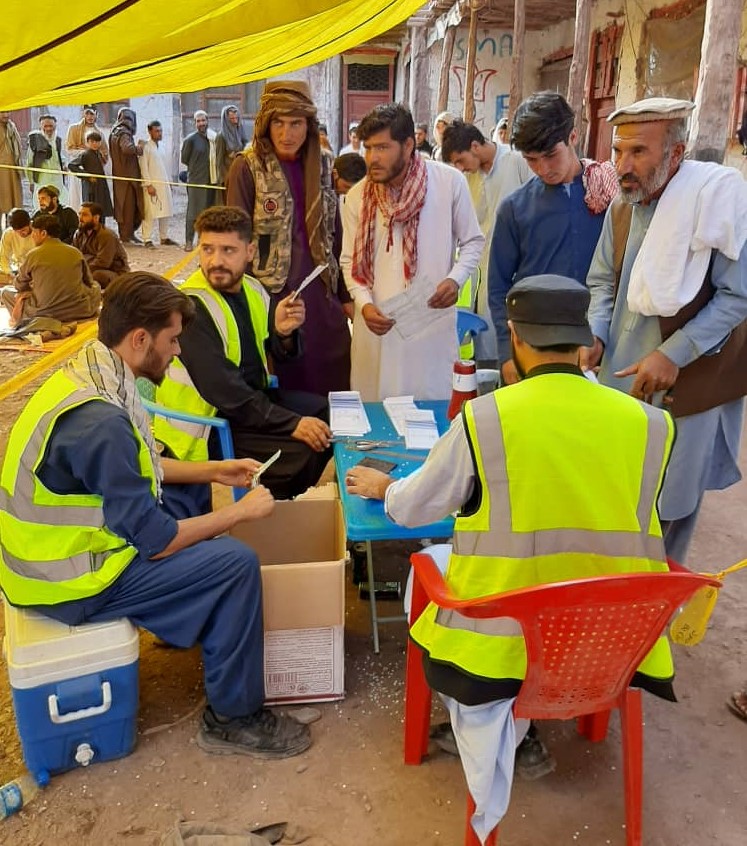
According to recent IPC analysis report published in May 2022, high acute food insecurity persists across Afghanistan, collapsing economy and drought is depriving nearly 20 million Afghans of food, classified in Crisis or Emergency (IPC Phases 3 or 4), between March and May 2022. Among these, 6.6 million people in Emergency (IPC Phase 4) and 13 million in (IPC Phase 3). Nearly 20 million people, are in high and critical levels of acute food insecurity (IPC Phases 3 and 4). Among these, 6.6 million people are classified in (IPC Phase 4), characterized by large food gaps and/or employing emergency coping strategies to access food. For the first time since the introduction of IPC in Afghanistan, Catastrophe conditions (IPC Phase 5) were detected for 20,000 people.
Kabul situation is similar to many other IPC Phase 3 and 4 provinces. Urban areas have been particularly hit by the recent waves of crises in Afghanistan, starting with the global COVID-19 pandemic and recently transition of the government in August 2021. Economic downturn and soaring unemployment levels compounded by unrelenting inflation levels have pushed millions of urban households into poverty. Kabul urban has been classified in IPC phase 3 for the period between March to May 2022. Between this period, 15% of people are in IPC phase 4 and 35% are under (IPC phase 3) food insecurity situation.
To respond to critical food needs of food insecure people in Kabul, AREP aims to support IPC phase 3 and 4 vulnerable people in Kabul under this project. The target location proposed by the FSAC and its in line with AHF allocation strategy. The project targets 8,715 individuals (1,245 households) including children, women, PWDs, elderly, women headed families. Under the current project, targeted beneficiaries will be supported with unconditional unrestricted cash for food assistance for 6 months. As per FSAC guideline, each beneficiary household will receive $60 (75% of the food basket) for 6 months ($60*6months=$360). The proposed cash assistance will enable vulnerable households to fulfil their food consumption gap. Distribution will happen on monthly basis and each month every household will receive $60 for 6 months.
The transfers will be made by a contracted Hawala. The assistance will be provided through unconditional unrestricted cash and given the functionality of market, this modality is deemed to be most effective and efficient at this time and provide recipients with greater agency in how they use their assistance to support their food security. Distribution will take place on sites accessible to all beneficiaries, including those access challenges. Specific distribution points and/or times will be organized for women to ensure they have safe and culturally sensitive access to the support. Distribution will be conducted under observance of Covid-19 distribution protocols and recognized by humanitarian community, use of facemasks, hand washing facilities provided, limited sizes of groups and enforced social distancing. AREP has also developed a package MOPH approved Covid-19 precaution and prevention communication materials, that are aligned to RCCE standards. These will be rolled out during this project and dedicated community worker will lead small and socially distanced dialogues with communities and beneficiaries. To minimize risks, supported households will be informed location, day and time of the distribution a day before. Where protection risks are greater, such as in the case of child headed households or mobility is lower such as in the case of elderly-headed households or beneficiaries with disabilities.
AREP has been a leading humanitarian responder for crises and development interventions since 1996 and serving many Afghan communities of similar vulnerability throughout the country including Kabul province. With the experience in the proposed activity and location, AREP will smoothly implement the project activities and achieve project objective.